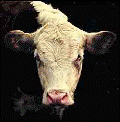Animal Science, Department of

Department of Animal Science: Dissertations, Theses, and Student Research
First Advisor
Prof. Matthew L. Spangler
Date of this Version
Spring 1-19-2018
Document Type
Thesis
Abstract
The interaction of livestock with the environment they live in is complex and plays a significant role in their production performance, which also depends on location and management practices. Climate change is projected to increase temperature globally. As a result, climate change will most likely aggravate the pressure from different sources of stressors on the current agricultural production system in general and in livestock specifically. Environmental conditions, such as changes in ambient temperature, can cause changes in animal behavior and performance. In general, it is believed that as ambient temperature increases, dry matter intake (DMI) of beef cattle decreases. However, our hypothesis was that the degree to which animals adjust their daily DMI due to changes in ambient temperature is partially controlled by genetic effects. Consequently, the objective of this study was to estimate the genetic component of the regression of DMI on ambient temperature using an admixed beef cattle population consisting of various crosses of Angus, Simmental, and Piedmontese (n = 239). Ambient temperatures were received from a local weather station and DMI was collected via Calen gates. The feeding period averaged 155 d with a range of 114 d to 189 d depending on the management group. Individual animal regressions of DMI on average daily ambient temperature were performed using either daily high or low temperatures over the entirety of the feeding period. Daily high temperatures (°C) averaged 15.07 with a range of -17.21 to 38.25. Daily low temperatures (°C) averaged 2.37 with a range of -28.33 to 15.26. The corresponding intercept and regression coefficient for each animal were used as phenotypes for a genome-wide association study (GWAS). Animals were genotyped with the BovineSNP50 Beadchip. Data were analyzed using GenSel software and a BayesC model fitting contemporary group (n = 4) and initial body weight (IBW) as fixed effects. A MCMC chain of 100,000 iterations were used with the first 40,000 samples discarded as burn-in. The proportion of SNPs having null effect (��) was set to 0.995. Posterior mean heritability estimates (PSD) for the analysis when daily high temperature was considered in the regression and myostatin genotype (MG) was included as fixed effect in the model (model-1) were 0.27 (0.07) and 0.25 (0.08) for the intercept and slope, respectively Posterior mean heritability estimates (PSD) for the analysis when daily high temperature was considered in the regression and MG was not included as fixed effect in the model (model-2) were 0.68 (0.06) and 0.45 (0.08) for the intercept and slope, respectively. Similarly, posterior mean heritability estimates (PSD) for the analysis when daily low temperature was considered in the regression for model-1 were 0.29 (0.09) and 0.27 (0.08) for the intercept and slope, respectively. Posterior mean heritability estimates (PSD) for the intercept and slope when the daily low temperature was considered in the regression were 0.76 (0.05) and 0.48 (0.08), respectively. These results suggest that changes in DMI due to changes in ambient temperature are under genetic control. Admittedly the population under study is small and admixed, suggesting that the genomic heritability estimates contained herein are potentially biased upward. However, the concept of applying this same procedure in larger populations warrants further investigation as a means of identifying animals that are less sensitive to environmental extremes.
Advisor: Matthew L. Spangler


Comments
A THESIS Presented to the Faculty of The Graduate College of the University of Nebraska In Partial Fulfillment of Requirements For the Degree of Master of Science, Major: Animal Science, Under the Supervision of Professor Matthew L. Spangler. Lincoln, Nebraska: January, 2018
Copyright (c) 2018 Robel Araya Ghebrewold